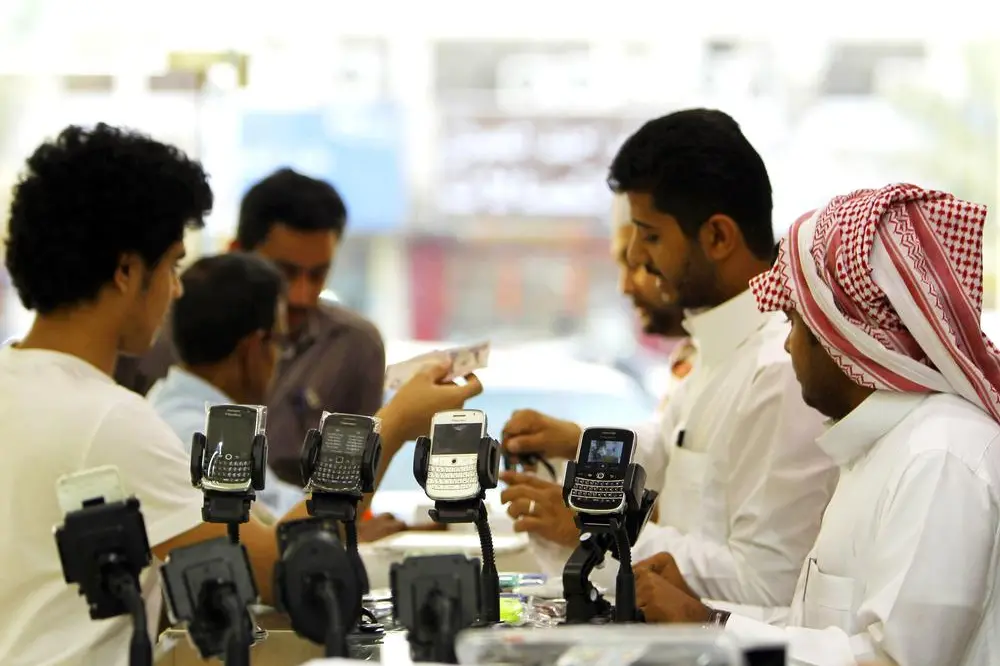PHOTO
RIYADH — Employees in KSA are increasingly looking to mobile communications solutions to collaborate and communicate more efficiently, according to research commissioned by Avaya. More than half of employees would prioritize a calling-and-data package on their mobile, while mobile access to e-mail is more desirable than internal calling and voice mail access, according to the Technology@Work Report, conducted by YouGov.
The report, which surveyed over 500 employees in KSA and more than 3,000 worldwide, showed that 60% of KSA workers wanted independent access to calling and data packages, with almost half wanting mobile e-mail access. Just 33% expressed a desire for internal calls and voice-mail access, compared with 43% that wanted remote access to file servers and databases.
Examining the benefits of a technology-assisted work environment, the ability to be more productive was the most-cited benefit by employees in the Kingdom, with almost two thirds, 64%, believing this to be the case. Workers in KSA are also pioneers in video conferencing, being more likely than the global average to use video to collaborate with colleagues, partners and customers.
The report comes at a time when unprecedented efforts are being made by the Saudi government to facilitate digital transformation programs that benefit citizens and spur economic growth. Technology will be a crucial enabler in meeting the goals of both the National Transformation Program and the country’s overarching Vision 2030 initiative. Digital transformation could generate $16.9 billion in extra revenue each year for companies in the Middle East from 2017 to 2021, as well as $17.3 billion in annual cost savings and efficiency gains, according to PwC.
While most employees in the Kingdom were satisfied with the collaboration and communications solutions available to them, more than one in four (26%) said they didn’t have access to the right tools, with mobile packages and mobile access to e-mails again leading demand. Almost half, 47%, of respondents, said that their ideal technology environment would also build communication and collaboration abilities into existing enterprise applications, such as a click-to-call facility in e-mail, or being able to join conference calls through their calendars.
The report showed that employees are also willing to use collaboration solutions outside their IT departments’ control, with 61% of KSA employees using WhatsApp or WeChat groups without specific management authorization, exposing companies to security risks.
“Digital transformation’s key objective is speed and agility to an enterprise’s culture. This is a new perception of technology adoption; how to facilitate highly mobile, dynamic teams to collaborate with each other virtually and still deliver a closed meeting-room experience,” said Hisham Al Sheikh, Country Manager for Avaya in Saudi Arabia. “Very often the collaboration and communication capabilities of employees are limited to basic connectivity solutions. At Avaya, our vision is to bring not only people together, but the applications and things with context to collaborate. In the new world, although people-to-people communications are predominant, machine-to-machine communications is rapidly growing. We therefore strive to bring people, applications and things together with the right information at the right time in the right context, helping employees to improve efficiency and quickly address critical business challenges.”
Within the Kingdom, leading enterprises such as Smart Link Contact Centers, the Dr. Sulaiman Al-Habib Medical Group, and King Abdullah Medical City have successfully embraced these new technologies to transform employee communication and collaboration together with Avaya.
Avaya has been positioned in the Leaders Quadrant of the Gartner Magic Quadrant for Unified Communications for seven consecutive years. Avaya’s enterprise communications portfolio includes Avaya Equinox, a mobile-first communications platform accessible from any browser, device, or desktop. Avaya Equinox delivers simple, mobile-first communications on the devices, and embedded into the applications and browsers, that employees “live in” every day, fulfilling the long-promised benefits of unified communications.
© The Saudi Gazette 2017





















